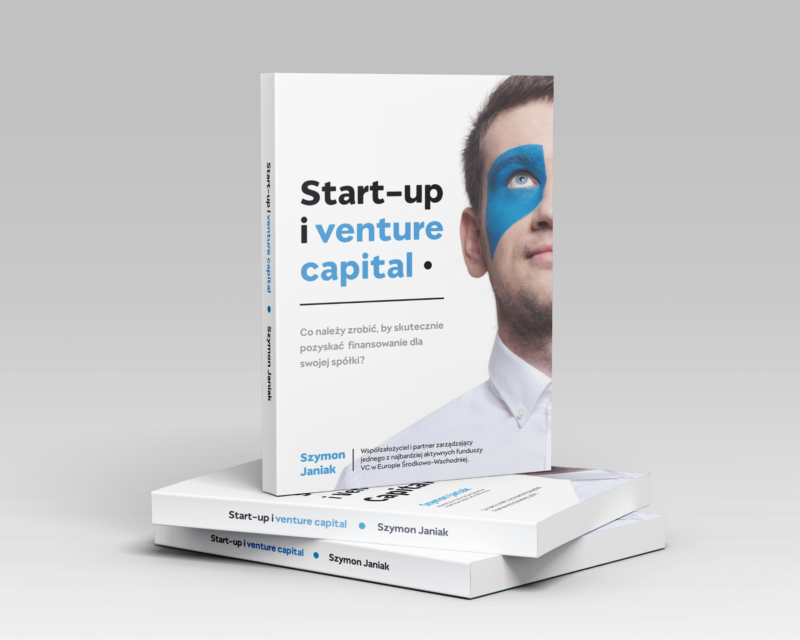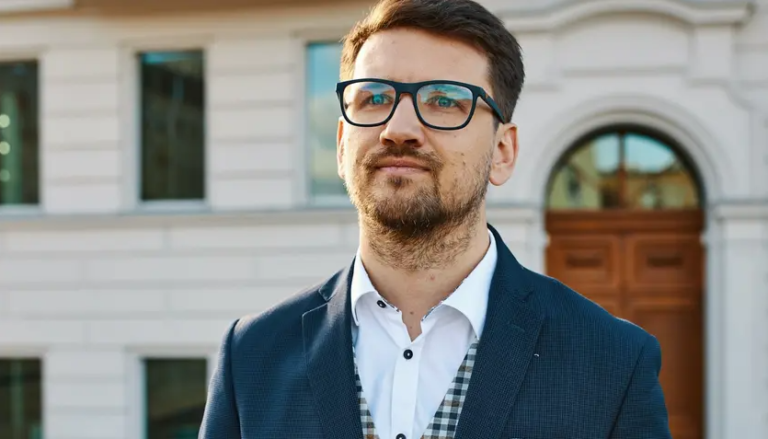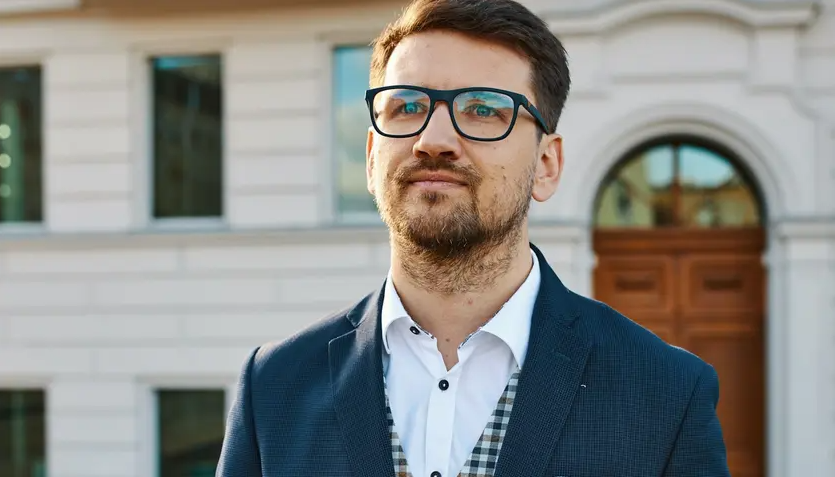You have been active for many years in the venture capital market, where many young start-ups see an opportunity to develop their companies. Is it with them in mind that your book was written?
– The idea for this book was born out of my personal experience. Once upon a time, when I was on the other side, being a startup, I tried on raising capital and had a huge problem with it. At the time, there was no source of knowledge from which I could learn in a comprehensive and pragmatic way what I should actually do. So I worked by trial and error. Even when creating a presentation for an investor, I prepared as many as 80 pages and it seemed impossible to shorten it.
Meanwhile, this was a no-brainer for a normal investor. Also, when I sat down to talk, I was focused on building grand visions, making projections of what the future should look like, instead of presenting what is interesting for investors, which is how we are going to create value for the company and make money.
Many years later, already standing on the other side of the barricade, I came to the conclusion that nothing has changed and there is still nowhere to get this knowledge. There are isolated, topical articles on Linkedin, sometimes podcasts. There were also, of course, publications on venture capital and startups, but these were grounded in the realities of the US market. Silicon Valley, meanwhile, still has little in common with Wrocław or Warsaw. That is why I thought it was time to give founders a bit more knowledge and share what is important from our perspective as investors. I am convinced that this will ultimately work positively for both sides – the funds and the startups themselves.
Essential knowledge for start-ups
What knowledge can start-ups gain from your book?
– The book has two main messages. The first is a set of pragmatic tips on what a person should do to raise capital for investment, i.e., among other things, how to prepare his or her company for this in order to even start thinking about it. Is venture capital the solution for him? If so, how to approach the investor and how to talk to them to make it all work.
The second message, on the other hand, is my own view of the Polish venture capital market – somewhat tongue-in-cheek and with a certain distance. This is because it is quite specific and hermetic. On the one hand, it lacks open criticism of pathological practices, and on the other, a certain openness. Venture capital investments are partnerships, where there must be a so-called ‘match’ between the investor and the startup. Both parties should be on similar wavelengths and must understand each other. Only then can we talk about the chances of successful cooperation in the future.
So, in your book, are you giving wings to founders and pushing them to move faster, or are you pulling them down to earth?
– Definitely the latter. I am a realist and approach the world by analysing it through data or facts. That’s why I rather try to impart a lot of pragmatic knowledge to prepare founders for what they might encounter. The truth is that a fund that enters a company also has certain requirements. These are not necessarily strictly finance-related. It is also about creating technology or starting operations in several markets. Then we work with the founders, create a joint plan and want to help them grow at a faster pace than they would without external capital.
That is also the goal – to help a company grow faster if it already knows which way it wants to go. It is worth bearing in mind, however, that good funds only invest in around 1 percent of the startups that apply to them. That is why it is worth preparing for this well – reading up on the subject, understanding the other side, talking to founders who have already had such cooperation.
This will also disenchant many myths about the venture capital industry, including that we will take over the company, tell them what to do or make them employees. This has little to do with reality. A good fund is one that pushes the founder in exactly the direction he would like to go. It just gives him the opportunity to grow faster without interfering with what he does on a day-to-day basis.
Useful information on how to raise capital
The book is primarily aimed at founders. Will anyone else find something in there for themselves?
– Certainly anyone with an interest in the venture capital industry. Transactional lawyers, accelerators who are involved in the investment process and journalists who support the technology scene all play a very important role in this environment. So, de facto, anyone who wants to know how venture capital works and how capital is raised should find answers here.

“Start-up and venture capital” Szymon Janiak
You have a lot of experience when it comes to venture capital….
– I have been active in the Polish technology scene for more than ten years and in various aspects. I started with marketing and business development of technology projects. Later, I was involved in advising on the valuation of startups as part of restructuring, mergers and acquisitions, i.e. hard financial engineering.
Then we created our own startups. It was one of the most interesting adventures of my life in terms of building something so quickly and at such a risky and short pace. At the time, we were operating on three continents – we had a management centre in Wroclaw, production in Asia and sales and marketing in Silicon Valley. It was a very interesting experience that showed me what business looks like from the founder’s side.
The next step was already our own fund, which my partner and I built from scratch. At the time, Poland was the ‘Wild West’ and everything was just being created – there were no local standards or practices. It was a bit of an imitation of what was happening on the American market and an attempt to implement similar activities in Poland. At the time, there were around 30 such funds operating in Poland. Today there are more than 130.
We have come a long way, but we are now much further along in this area. Our home market is becoming more and more mature. There are many interesting companies, but also funds that are worth entering into cooperation with. As Czysta3.vc, we invest at the so-called seed stage, when companies are just establishing themselves. Currently, our portfolio generates several tens of millions of revenue per year.
Intellectual property is key in venture capital
Does venture capital only apply to technologic companies?
– Generally yes, as intellectual property is key in venture capital. From the perspective of evaluating a given company, values such as team, financial parameters or business model are the first to be looked at. However, at the end is always that unique intellectual property, which is written in the form of code that enables the delivery of services or the creation of an innovative product. It has to be something tangible – something unique that makes it scalable and the same business model can be implemented in other markets.
What were the most interesting ventures you invested in?
– It is hard to pick and choose unequivocally, as our investment portfolio is diverse. We invest in internet ventures, i.e. companies from different industries that have the internet as their common denominator as the environment in which they operate. These can be solutions from very different industries. For example, our portfolio includes a company that has developed an artificial intelligence algorithm to assess whether a plot of land is suitable for the creation of a photovoltaic farm.
We also have a company that, on the basis of psychometric tests, makes it possible to assess whether a person is suitable for certain jobs. One of our latest investments is a company that assesses, on the basis of satellite imagery, how a mine affects the landscape and the environment in which it operates.
All of these ventures are extremely interesting. This is one of the coolest things about this industry, because you are constantly learning and seeing how technology can support us in what we are doing. It shows that we can digitize processes that until now seemed like they would continue to function in their traditional form forever. This is why we invest at the so-called seed stage, when companies are still in the process of setting up their venture.





